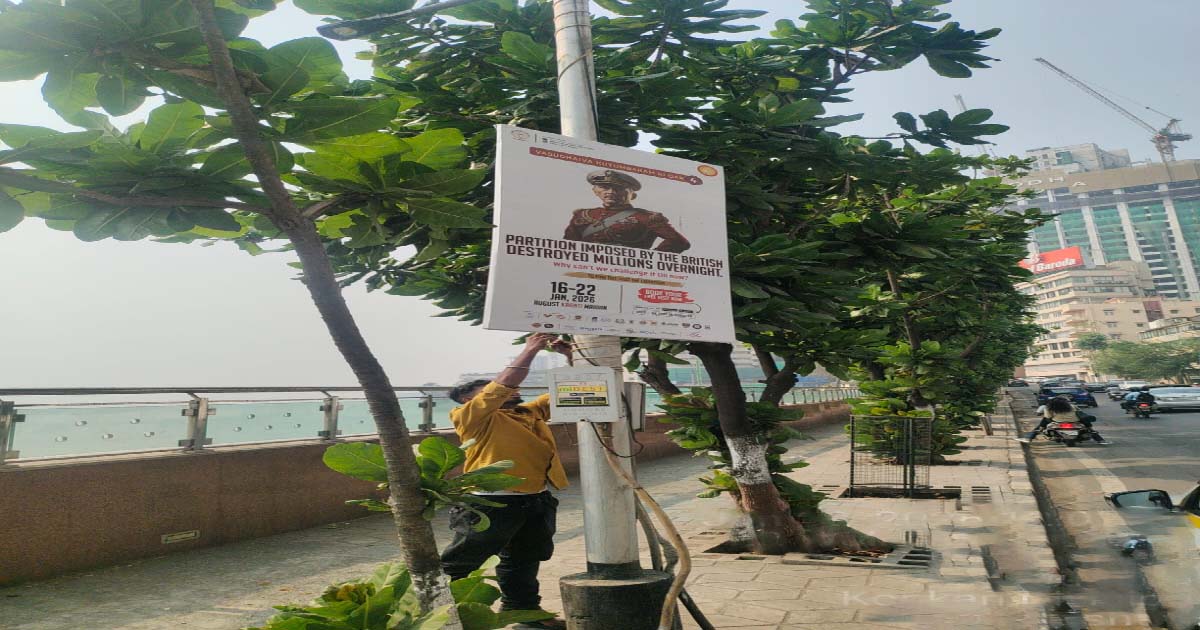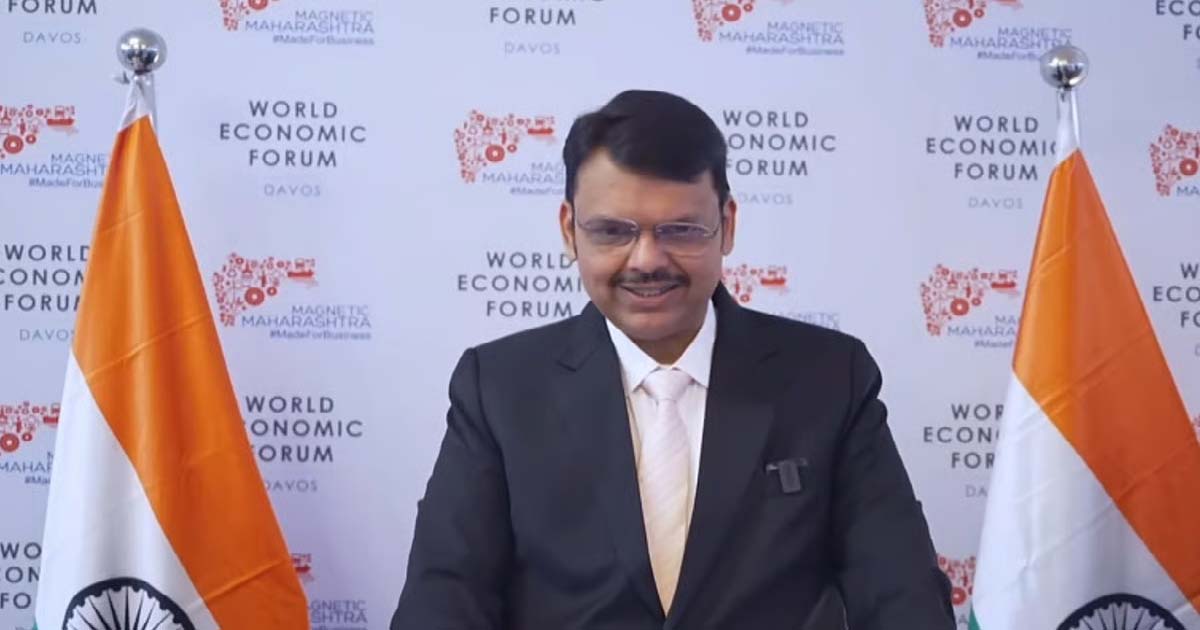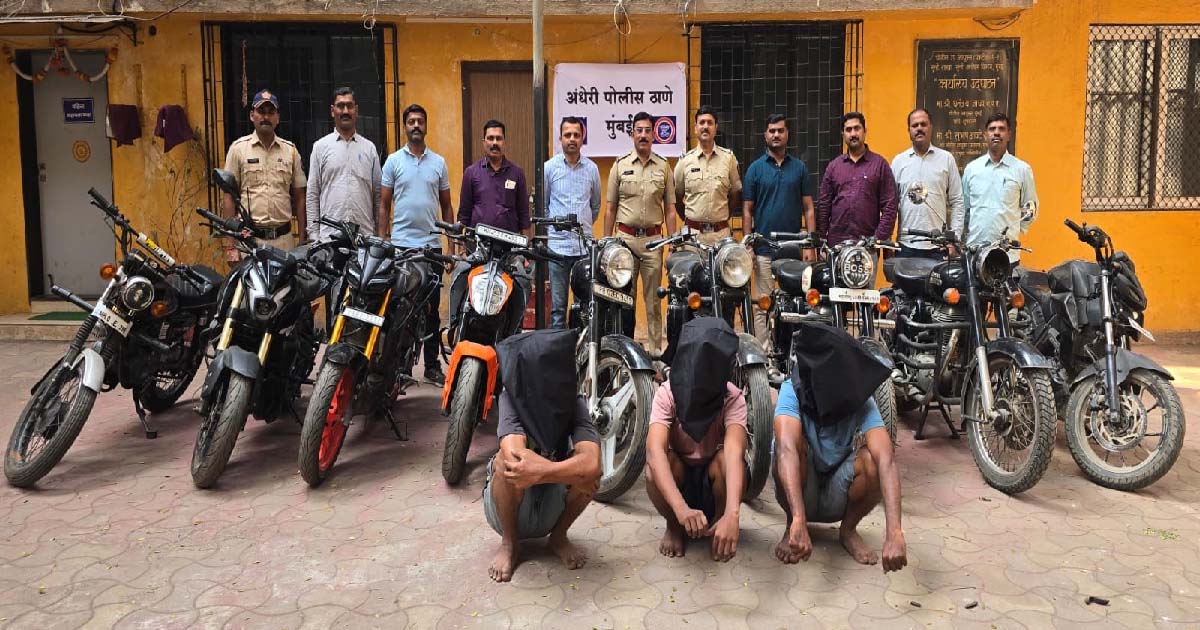Maharashtra
Bombay HC Issues Notice To State On Plea For Enforcing CPCB’s Ban On Plaster Of Paris Idols

Mumbai: The Bombay High Court on Wednesday issued notice to the State government on a plea seeking implementation of the revised guidelines by Central Pollution Control Board (CPCB) which mandates a complete ban on the use of Plaster of Paris (PoP) for religious idols to be immersed in water.
The CPCB had issued “Revised Guidelines for Idol Immersion” on May 12, 2020 mandating the complete ban on use of PoP “due to the extreme and irreparable water pollution caused by the immersion of these idols in natural water bodies”.
A bench of Chief Justice DK Upadhyaya and Justice Amit Borkar issued the notice while hearing a public interest litigation (PIL) petition, filed by three citizens and nine clay-based and small scale craftsman of idols, contending that the actions undertaken by the Respondent Authorities to enforce the Guidelines are “farcical measures designed only to pay lip-service to the provisions of the Guidelines”.
Petitioners’ advocate Ronita Bhattacharya submitted that despite the CPCB ban in 2020, which was to come into effect in 2021, the state is dilly dallying in its implementation to appease manufacturers of PoP idols. Even the Supreme Court had categorically said that manufacture of PoP idols and its immersion in water cannot be permitted.
“Despite this, it is not being effectively implemented in Maharashtra. The ban should be made mandatory under the Water (Prevention and Control of Pollution) Act, which invites penal provisions if not followed,” Bhattacharya said.
The Act requires registration of non-PoP idol makers and the list has to be published so people are aware of the same. However, no steps have been taken in the regard. The CPCB recommended using eco-friendly idols made of natural clay and biodegradable materials to mitigate these harms. Hence, there is a need to publish a list of idol makers using eco-friendly material.
Bhattacharya pointed out to the court that the Nagpur bench of the HC had taken suo motu (on its own) cognisance of the issue two years back and had issued several directions for implementation of the ban, but directions have not been compiled with.
The Nagpur bench had formed a technical committee to oversee the implementation of the ban. However, the committee has taken upon itself to examine the manner in which the pollution caused by the PoP idols can be mitigated. Also, the minutes of the meeting conducted by the committee reflects that the committee contemplated getting experts’ opinions on the validity of the CPCB ban. “This is ridiculous, as there can be no PoP at all,” Bhattacharya added.
The plea seeks formation of a district level committees for regular checks to ensure effective implementation of the revised CPCB guidelines. Also, action should be taken against idol makers who continue using PoP.
Advocate Tushad Kakalia, appearing for NGO Vanashakti, pointed out that the high court had last year issued a series of directions to ensure no PoP idols were immersed in the natural lake inside the suburban Aarey Milk Colony, which is an eco-sensitive zone.
The court had expanded the scope of the petition to ensure adherence to CPCB guidelines. The NGO has again moved an application for continuation of the directions during the coming Ganesh festival.
The HC has clubbed both the PILs and kept them for hearing in August.
Why idol makers continue using PoP –
PoP for the making of idols is commercially more viable than using clay.
PoP is a cheap material that is easy to use, and keeps the cost of operations low and the margin of profits on making idols high.
Clay suitable for idols is not easy to obtain, is a time consuming material to mould and perfect, and requires a higher degree of skill to manoeuvre.
Disadvantages of PoP –
Has several harmful effects on the environment Including water pollution, soil pollution, damage to the marine ecosystem, waste generation, and environmental degradation.
PoP idols do not dissolve easily in water, leading to the accumulation of non-biodegradable materials and disrupting the aquatic ecosystem.
When immersed in soil, PoP idols release harmful chemicals and heavy metals, contaminating the soil and affecting its fertility.
PoP idols contain chemicals such as Gypsum, Sulphur, Phosphorus, and Magnesium. Chemical paints used for colouring idols may contain Mercury, Cadmium, Arsenic, Lead, and Carbon, which are harmful to the nervous system and kidneys.
These heavy chemicals have bio-accumulative properties and can enter the food cycle through aquatic creatures like fish, ultimately affecting human consumption.
Non-biodegradable materials like plastics and thermocol used in idol decoration pose a threat to terrestrial and aquatic environments when immersed in water bodies.
Maharashtra
Mumbai: BMC takes strict action against those who put up banners without permission, cases registered at Malabar Hill and DB Marg police stations

Mumbai: The Mumbai Municipal Corporation administration has provided space for displaying temporary advertisements within the municipal limits, some institutions, organizations and traders are illegally putting up banners on electricity poles on both sides of the roads. A case has been registered against such institutions, organizations and traders by the Licensing Department at Gaudevi, Malabar Hill, Dr. DB Marg police stations against an unknown person. This action was taken on two days i.e. on 21st and 22nd January 2026. A total of 41 banners were removed in this action. The Licensing Department of the Municipal Corporation has also appealed to the public to display advertisements only after taking permission from the Municipal Corporation. The Municipal Corporation has also made it clear that strict action will continue against those who put up banners, hoardings and posters in public places without permission.
This action has been taken by the Licensing Department under the guidance of Mrs. Chanda Jadhav, Deputy Commissioner (Special) of the Mumbai Municipal Corporation. The Licensing Department conducted the operation at Dr. Gopal Rao Deshmukh Marg (Peder Road), Pandita Ramabai Marg, Bholabhai Desai Marg, Walkeshwar, Malabar Hill, Dr. Dadasaheb Bhadkamkar Marg, Maulana Shaukat Ali Marg, Sardar Vallabhbhai Patel Marg and Raja Ram Mohan Roy Marg of the Municipal Corporation. In addition, First Information Reports (FIRs) regarding the registration of the offence have been registered at three police stations namely Gawadevi, Malabar Hill and Dr. Dadasaheb Bhadkamkar Marg. Accordingly, a case has been registered at the concerned police station. As per the directions of the High Court, it is prohibited to put up any hoarding, banner or poster in public places within the limits of the Municipal Corporation without a permit. It is prohibited to put up any advertisement hoarding, banner or poster on any subject on public roads and footpaths under the jurisdiction of the Mumbai Municipal Corporation without the prior permission of the Municipal Corporation. Sections 328/328-A, 471 of the Maharashtra Prevention of Defacement of Property Act 1995 and 18 of the Mumbai Municipal Corporation Act provide for legal action against any person or organisation who puts up such hoardings, banners or posters without permission. The Licensing Department has stated that if these provisions are violated, legal action will include registering a case against the person concerned and filing a case in court.
Complaint facility on toll-free number
The Mumbai Municipal Corporation administration has appealed to citizens to contact the toll-free number 1916 to register a complaint against unlicensed and unauthorized hoardings and banners. The facility to register a complaint against unlicensed hoardings is also available on the municipal corporation’s official website www.mcgm.gov.in and on social media @mybmc.
Maharashtra
Maharashtra Govt & CANEUS International Partner To Establish World’s First Mid-TRL Innovation Institute In Mumbai

Davos [Switzerland]: CANEUS International and the Government of Maharashtra announced their partnership at the World Economic Forum in Davos to establish the world’s first dedicated Mid-Technology Readiness Level (TRL) Innovation Acceleration and Skilling Institute. The Memorandum of Understanding was signed in the presence of Maharashtra Chief Minister Devendra Fadnavis and Milind Pimprikar, Chairman of CANEUS International.
According to a press release from CANEUS International, the facility will be located in the Mumbai Metropolitan Region (MMR) and will focus on frontier technologies, including aerospace, space, energy, and deeptech.
The project aligns with the World Economic Forum’s 2026 theme regarding the responsible deployment of innovation at scale. The institute aims to address Mid-TRL levels 4-6, which represent the transition from laboratory research to qualification and early production. The facility will be situated within a purpose-built ecosystem in the MMR, spanning 10 million square feet to support global collaboration and industry partnerships.
At the signing of the MoU, the Chief Minister of Maharashtra, Devendra Fadnavis, reaffirmed the State’s strong commitment to the global investor community. He emphasised, “Maharashtra is well equipped and proud to partner with CANEUS International to pioneer the creation of innovation centres across dynamic sectors, frontier technologies, and aerospace. The State takes pride in partnering with this prestigious institute near Mumbai–the commercial capital of India and the world’s fourth-largest economy–perfectly aligning with Maharashtra’s aspirations to scale its innovation ecosystem globally.”
The institute is designed to bridge the “valley of death” in technology development. Milind Pimprikar, Chairman of CANEUS International, said, “This world-first Mid-TRL Innovation Acceleration Institute will bridge the ‘valley of death’ by advancing TRL 4-6 innovations through rapid prototyping, systems integration, validation, and flight/field trials, taking breakthroughs from lab to qualification and early production for real-world deployment and global competitiveness.”
The curriculum and skilling pathways will be developed in collaboration with original equipment manufacturers (OEMs), Tier-I suppliers, and research institutions to meet industry requirements. This focus on system integration readiness is intended to fill a critical global gap in frontier technology programmes where reliability and deployment readiness are essential.
This partnership supports the Viksit Maharashtra 2047 vision and the state’s objective of becoming a trillion-dollar economy. It also aligns with the Maharashtra Industries, Investment & Services Policy (MIISP) 2025. The initiative emphasises industry-aligned skilling through public-private partnerships to create workforce pathways for strategic sectors.
Maharashtra
Mumbai sports bike theft gang exposed 9 cases solved after bike thieves arrested in Andheri, big success for Mumbai Police

Mumbai: Police have busted a gang of sports bike thieves in the Andheri police station limits and have claimed to have arrested three accused. Nine sports motorbikes worth Rs 18 lakh have also been recovered from their possession. On January 13, 2026, a complaint was filed with the police that an Enfield bike was stolen from the BMC office here. The bike thieves are residents of Sakinaka and Andheri Sangharsh Nagar and are not available at home at night, after which the police laid a trap and monitored them for three days and later arrested them. The accused have been identified as Om Kar Sunil, 22, a rickshaw driver from Sakinaka, Sagar Rahul, 19, an unemployed Chandivali, and Kartik Vishnu, 18, a student from Sakinaka, Sakinaka. After their arrest, it was revealed that these accused were involved in 9 thefts and other cases. The police have exposed a big racket of thieves and arrested the accused. This operation was carried out by DCP Datta Nalawade on the instructions of Mumbai Police Commissioner Devin Bharti.
-

 Crime3 years ago
Crime3 years agoClass 10 student jumps to death in Jaipur
-

 Maharashtra1 year ago
Maharashtra1 year agoMumbai Local Train Update: Central Railway’s New Timetable Comes Into Effect; Check Full List Of Revised Timings & Stations
-

 Maharashtra1 year ago
Maharashtra1 year agoMumbai To Go Toll-Free Tonight! Maharashtra Govt Announces Complete Toll Waiver For Light Motor Vehicles At All 5 Entry Points Of City
-

 Maharashtra1 year ago
Maharashtra1 year agoFalse photo of Imtiaz Jaleel’s rally, exposing the fooling conspiracy
-

 National News1 year ago
National News1 year agoMinistry of Railways rolls out Special Drive 4.0 with focus on digitisation, cleanliness, inclusiveness and grievance redressal
-

 Maharashtra1 year ago
Maharashtra1 year agoMaharashtra Elections 2024: Mumbai Metro & BEST Services Extended Till Midnight On Voting Day
-

 National News1 year ago
National News1 year agoJ&K: 4 Jawans Killed, 28 Injured After Bus Carrying BSF Personnel For Poll Duty Falls Into Gorge In Budgam; Terrifying Visuals Surface
-

 Crime1 year ago
Crime1 year agoBaba Siddique Murder: Mumbai Police Unable To Get Lawrence Bishnoi Custody Due To Home Ministry Order, Says Report












